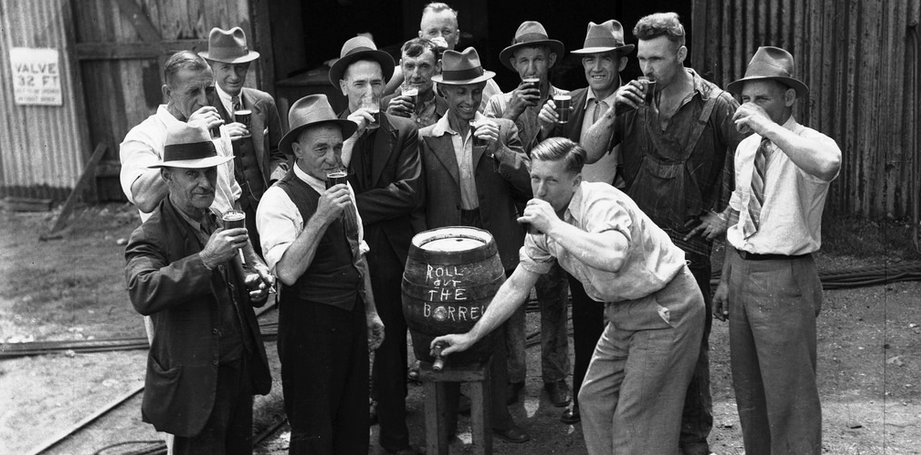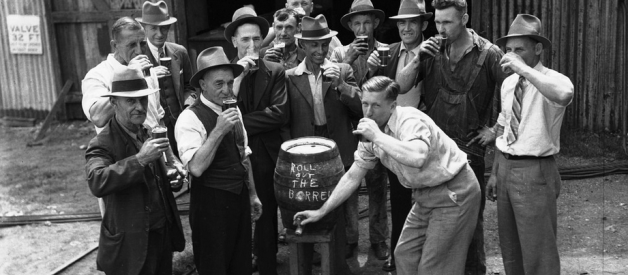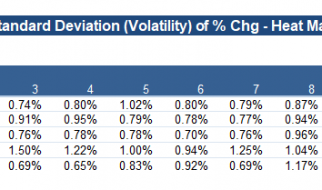 Launching of HMAS WARREGO II at Cockatoo Island Dockyard ? This photo is part of the Australian National Maritime Museum?s Samuel J. Hood Studio collection. Sam Hood (1872?1953) was a Sydney photographer with a passion for ships. His 60-year career spanned the romantic age of sail and two world wars. The photos in the collection were taken mainly in Sydney and Newcastle during the first half of the 20th century.
Launching of HMAS WARREGO II at Cockatoo Island Dockyard ? This photo is part of the Australian National Maritime Museum?s Samuel J. Hood Studio collection. Sam Hood (1872?1953) was a Sydney photographer with a passion for ships. His 60-year career spanned the romantic age of sail and two world wars. The photos in the collection were taken mainly in Sydney and Newcastle during the first half of the 20th century.
(1) Definition
Under the Fair Credit Reporting Act (?FCRA?) a ?consumer report? (CR) is any written, oral, or other communication of any information bearing on a consumer?s creditworthiness, credit standing, credit capacity, character, general reputation, personal characteristics, or mode of living which is used or expected to be used or collected in whole or in part for the purpose of serving as a factor in establishing the consumer?s eligibility for:
(i) credit or insurance to be used primarily for personal, family, or household purposes;
(ii) employment purposes; or
(iii) any other FCRA permissible purpose (Section 1681b )
15 U.S.C. 1681a(d)(1)
Investigative consumer report: A CR that pertains to the consumer?s character, general reputation, personal characteristics, or mode of living obtained through interviews with friends, family, neighbors or associates is an ?investigative consumer report?. See, 15 U.S.C. 1681a (e)
- Because information must be obtained during the interview, an investigative report DOES NOT include information obtained directly from a creditor or from a CRA (that obtained it from the creditor). (See, FTC ?40 Years of Experience with the Fair Credit Reporting Act: An FTC Staff Report with Summary of Interpretations? at 27, 62)
- Communications that are excluded from the definition of CR (see (2) below ?Exclusions?) cannot be included in an investigative report. Reports made in connection with the investigation of employee misconduct or investigations into an employee?s compliance with federal, state, or local laws are not CRs and, therefore, not investigative reports (see (2)(C) ?Employment related records? below).
- CRAs and users of investigative reports are required to provide additional notices to consumers that are subjects to investigative reports.
Publicly available information: A CR may include public or nonpublic information. Even if the only information that a CRA collects, maintains, and disseminates is obtained from publicly available sources, it may still be considered a consumer report.
See; Case Study: FTC v Spokeo , Case study: FTC letter to Social Intelligence, Case study: FTC letter to Sum
(2) Exclusions:
The FCRA establishes three exclusions from the definition of ?consumer report? that allow certain information to be communicated without being regulated as a ?consumer report? (and without the communicator being regulated as a consumer reporting agency).
Except for disclosures covered in (3) below, the following is not a consumer report:
(A) First exclusion: Certain communications (subject to section 1681s-3)
- reports containing information solely as to transactions or experiences between the consumer and the person making the report (?transaction and experiences information?);
- any communications of transaction and experience information among persons related by common ownership or affiliated by corporate control (?affiliates?); or
- communication of other information among affiliates, if the sharing is clearly and conspicuously disclosed and the consumer is given the opportunity (before sharing), to opt-out;
See, 15 U.S.C. 1681a(d)(2)(A)
(B) Second exclusion: Specific extensions of credit
- any authorization or approval of a specific extension of credit directly or indirectly by the issuer of a credit card or similar device;
- any report in which a person who has been requested by a third party to make a specific extension of credit directly or indirectly to a consumer conveys his or her decision with respect to such request, if the third party advises the consumer of the name and address of the person to whom the request was made, and such person makes the disclosures to the consumer required under section 1681m of this title; or
See, 15 U.S.C. 1681a(d)(2)(B)&(C)
(C) Third exclusion: Employment related records
- Hiring: Communications made to a prospective employer for the purpose of (i) procuring an employee for the employer; (ii) or procuring an opportunity for a natural person to work for the employer; provided that there has been notice and consent. See, 15 U.S.C. 1681a(o)
- Misconduct: An communication made to an employer in connection with an investigation of: (i) suspected misconduct relating to employment; or (ii) compliance with Federal, State, or local laws and regulations, the rules of a self-regulatory organization, or any preexisting written policies of the employer; provided that there has been notice and consent. See, 15 U.S.C. 1681a(y)
(3) Restrictions on sharing medical information
Certain disclosures of medical information are considered consumer reports under FCRA even where the exemptions in (2) above apply. Specifically, disclosures to any person related by common ownership or affiliated by corporate control, are considered consumer reports if the information is:
- medical information;
- an individualized list or description based on the payment transactions of the consumer for medical products or services; or
- an aggregate list of identified consumers based on payment transactions for medical products or services.
Communication of information disclosed as provided in section 1681b(g)(3) are exempted from this rule.
See, 15 U.S.C. 1681a(d)(3)
Examples
Types of information that may qualify
Examples of types of information that may qualify as CR include:
- arrest, convictions, judgements, and bankruptcies;
- criminal histories, education, and licenses held by consumers;
- drug tests (if provided by an intermediary to an employer but not when a drug lab provides the result directly to the employer)
- employment history;
- rental history;
- driving records;
- credit scores, credit histories and payment patterns;
- consumer lists (for example, list of creditworthy individuals);
- information collected from social networking websites
See: Case Studies Islinger and Spokeo (Links in Resources below)
Types of information that do not qualify:
Examples of types of information that does not qualify as a CR include:
- on their own transactions and experiences with a consumer;
- transaction and experience information about a consumer among affiliated companies;
- information other than transactions and experience (?other information?) communicated by the company making the report and its affiliates, provided that the customer is given the opportunity to opt-out;
- specific extensions of credit; and
- certain employment-related reports, including reports by employment agencies to prospective employers in there has been notice to and consent by the consumer.
See, Case study: FTC Advisory Opinion to Novak
NOTE: On the use for marketing purposes see, 15 U.S.C. 1681s-3.
Resources
Case Study: FTC Advisory Opinion to Islinger ( Reports on criminal histories, education, and licenses are subject to FCRA but drug use reports may or may not depending on the circumstances)
Case Study: FTC v Spokeo (Data brokers are subject to FCRA. CR may include only publicly available information)
Case study: FTC Advisory Opinion to Novak (the following information is information excluded from the definition of CR under FCRA: (i) ?Transaction or experience information? including the customer?s account history with a company, the length of time a customer has held a credit card with the issuer, the number of times a consumer has been late in making payments on a credit card, and the average monthly balance in a consumer account AND (ii) information other than transactions and experience (?other information?) communicated by the company making the report and its affiliates, provided that the customer is given the opportunity to opt-out)
Case study: FTC letter to Social Intelligence ( Social Intelligence Corp was a CRA because it sold computer records that included public information gathered from social networking websites to be used by employers in pre-employment background screening)
Case study: FTC letter to Sum ( An entity that meets the definition for a ?consumer reporting agency? (CRA) is covered by FCRA even if the only information it collects, maintains, and disseminates is obtained from ?public record? sources.)


